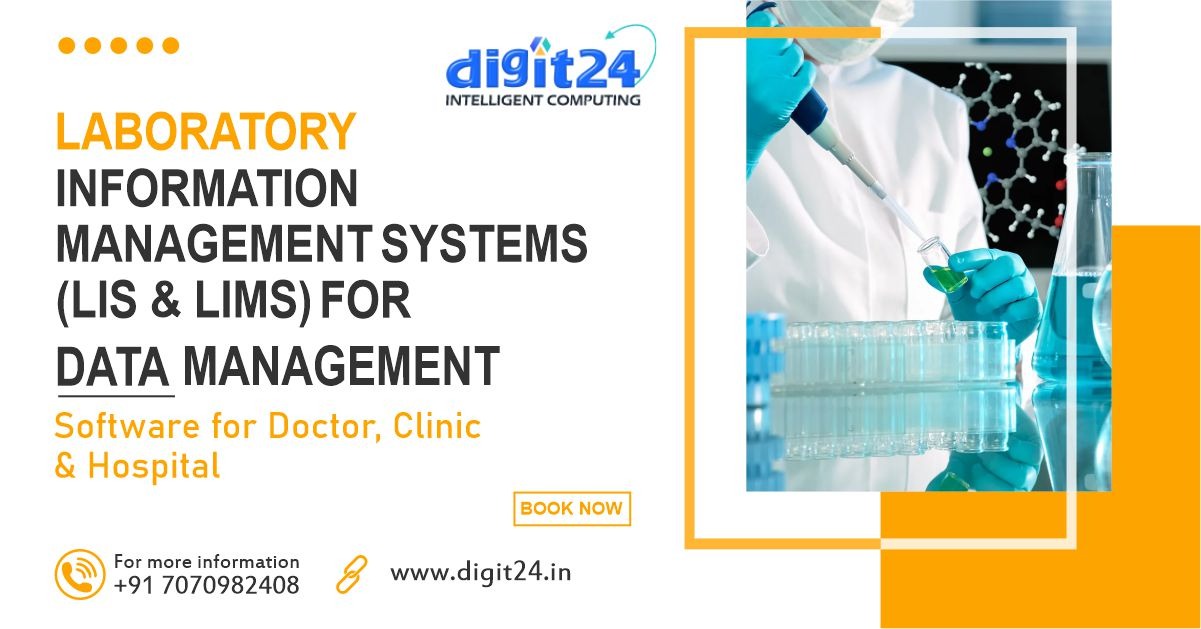What is LIS Software?
A Laboratory Information System (LIS) is a healthcare software solution that processes, stores and manages patient data related to laboratory procedures and testing. Providers and laboratory professionals use laboratory information systems to coordinate the workflow and quality control of inpatient and outpatient medical testing, including in hematology, chemistry, immunology, microbiology, toxicology, public health and other laboratory fields. Laboratory Information Systems tracks, stores and updates clinical details about a patient during a provider visit and stores the information in its own database for future reference.

To Get Best Pathology Lab Management Software : CLICK HERE
How Does LIS Software Work?
LIS is a software system that records, manages, updates and stores patient test data for clinical and anatomic pathology laboratories, including receiving test orders, sending orders to laboratory analysts, tracking orders, results and quality control. and transmitting the results to one. EHR, practice management system, or other information system. LIS may include decision-support rules that guide workflow, outreach tools, data mining capabilities, audit capabilities, and point-of-care testing support. LIS allows the laboratory to actively contribute to provider determination of patient health status and treatment development.
What is the Difference Between LIS & LIMS?
Laboratory Information Systems (LIS) and Laboratory Information Management Systems (LIMS) are terms that are sometimes used interchangeably, and when the two overlap, they are used to refer to different laboratory types and supporting functionality. was designed. LIS is traditionally used to refer to systems that support healthcare clinical settings and patient-specific samples. LIMS was historically designed to support sample-focused laboratory needs, such as clinical research, or other non-clinical laboratory settings. Today, the functionality of the two systems greatly overlaps and both LIS and LIMS have many features in common with the traditional functionality of the other.
Why Do Laboratories Need Dedicated Laboratory Systems?
In today’s healthcare sector, laboratories require a dedicated LIS and committed vendor support to manage the complexities and regulatory nature of laboratory testing. A dedicated, flexible LIS can help improve laboratory workflow efficiency and error-proofing by aiding decision-making, ensuring consistent execution of processes that increase laboratory productivity, and automating proper billing, top-notch reimbursement Ensures.
Information systems designed for laboratories play a significant supporting role in meeting quality control standards, reducing transcription errors, improving workflows, incorporating automation, and contributing to patient care from a clinical perspective or for research purposes Performs. In recent years, technological advances in laboratory equipment have resulted in a greater demand for (and reliance on) laboratory data to support clinical, microbiological and public health needs.
What is a LIMS?
A Laboratory Information Management System (LIMS) is software that allows you to manage samples and related data effectively. Using LIMS, your lab can automate workflows, integrate equipment, and manage samples and related information. Additionally, you can generate reliable results more quickly and track data from sequencing and across experiments over time to improve efficiency.
Modern genomics generates an unprecedented amount of data. Facing ever-increasing data volumes and sample throughput along with continuous changes in technology, laboratories must modernize their approach to managing, tracking and centralizing genomics data.
Key Benefits of a LIMS
Although the primary purpose of LIMS is to track and manage samples, it can do much more.
Enable workflow automation which in turn can reduce human error
Centralize access and storage of quality control data
Support compliance efforts
Track reagents and many more
Perform instrument run monitoring
Start downstream data analysis
Integrate with instruments or other in-lab systems to improve laboratory efficiency
Choosing a LIMS for Sequencing
We provide guidance to Next Generation Sequencing (NGS) laboratories on choosing LIMS. These include key features to look for and ideas about the types of equipment you’ll need to integrate. Management and sequencing of samples in high-throughput environments are particularly beneficial because of the efficiency and accuracy provided by LIMS.
LIMS Solution for Genomics Labs

